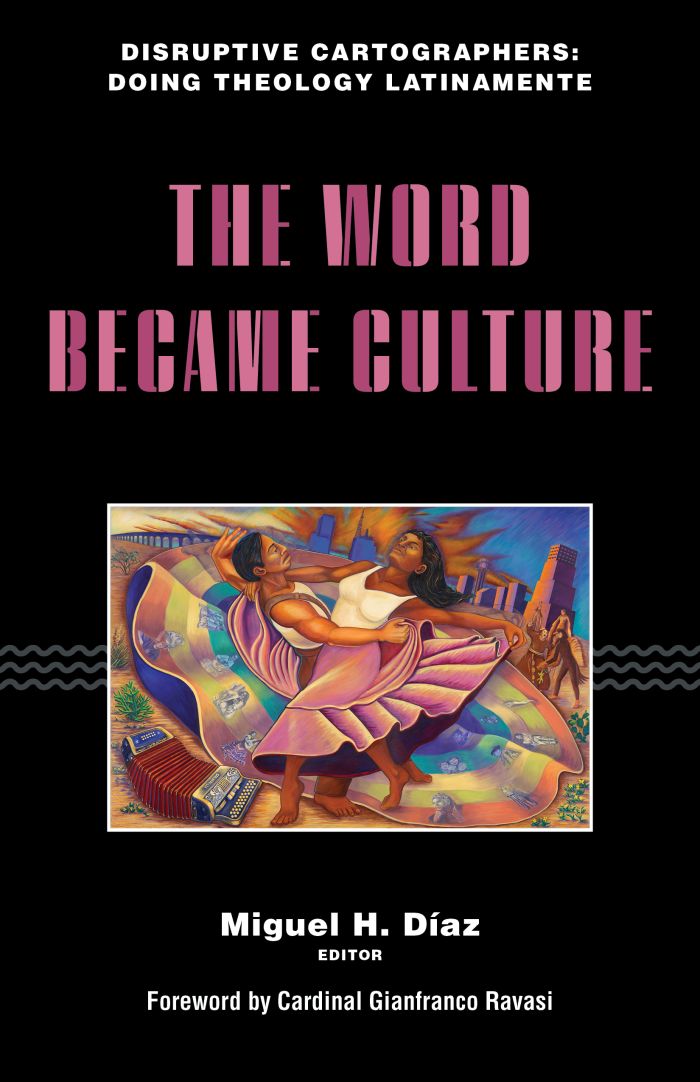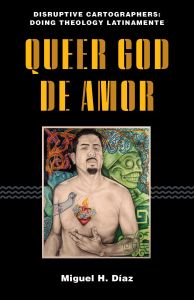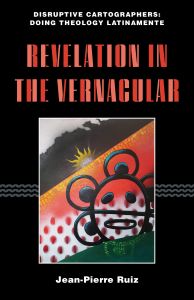The Word Became Culture

This book can be opened with

Exploring Latin@ theologies and the power of revelation.
The Word Became Culture enacts a preferential option for culture, retrieving experiences and expressions from across latinidad as sources of theologizing and acts of resistance to marginalization. Each author in this edited volume demonstrates the many ways in which Latin@ theologies are disruptive, generative, and creative spaces rooted in the richness, struggles, texts, and rituals found at the intersections of faith and culture. With a foreword by Cardinal Gianfranco Ravasi, president emeritus of the Pontifical Council for Culture, this book situates Latin@ theologies in the ongoing search for and recognition of the “Word becoming” within the particularities of diverse cultural experiences.
A crucial corollary of the Christian belief in the Incarnation is the affirmation that revelation can only take place in and through human cultures. Consequently, U.S. Latinx theologians have been asking what a theology done latinamente would look like. This book answers that question.—Roberto S. Goizueta, Boston College
In Evangelii Gaudium 53, Pope Francis condemns “throw away” culture and encourages the growth of a “multifaceted culture of encounter” (220). This book addresses that call, reflecting on the Americas latinamente in all their colorful splendor and rich diversity, and in accord with the magisterium of the Latin American pope. Thank you to the authors for your commitment to life!—Emilce Cuda, Secretary of the Pontifical Commission for Latin America
A groundbreaking collection of essays representing the best of the critical and cutting edge approaches to theologizing latinamente that seek to challenge, disrupt, and reimagine the task of theologizing beyond its complacent Eurocentric underpinnings.—Jonathan Y. Tan, Case Western Reserve University
Miguel H. Díaz is the John Courtney Murray, SJ, University Chair in Public Service at Loyola University Chicago. Dr. Díaz served under President Barack Obama as the ninth U.S. Ambassador to the Holy See. He is a co-editor of the series Disruptive Cartographers: Doing Theology Latinamente and author of the third volume in the series, Queer God de Amor (Fordham). As a public theologian, Professor Díaz regularly engages print, radio, and television media. He is a contributor to the “Theology en la Plaza” column for the National Catholic Reporter. As part of his ongoing commitment to advance human rights globally, he participates in several diplomatic initiatives in Washington, D.C., including being a member of the Atlantic Council, a member of the Ambassadors Circle at the National Democratic Institute (NDI), and a member of the Board and Senior Fellow for Religion and Peacebuilding for the Alliance for Peacebuilding (AfP).
Cardinal Gianfranco Ravasi (Foreword By)
Cardinal Gianfranco Ravasi is President emeritus of the Pontifical Council for Culture and President of the Pontifical Commission for Sacred Archeology. A professor of exegesis of the Old Testament, he taught in Milan at Facoltà Teologica dell’Italia Settentrionale and from 1989 to 2007 he served as prefect of the Ambrosian Library. Since March 2012 he has been president of the cultural association Casa di Dante in Rome, dedicated to making the works of Dante known throughout Italy and abroad. In 2011, he inaugurated the initiative, “The Court of the Gentiles, which earned him international acclaim. This initiative sought to bridge Christian faith and reason by engaging in critical conversations with a wide range of publics. He is a prolific writer who has authored some 150 volumes, mostly in biblical studies, as well as numerous popular publications.
Preface to the Series | vii
Carmen M. Nanko-Fernández, Gary Riebe-Estrella, Miguel H. Díaz
Acknowledgments | xi
Introduction: A Preferential Option for Culture | xv
Miguel H. Díaz
Foreword | xxi
Cardinal Gianfranco Ravasi
1. The Word That Crosses: Life-giving Encounters with the Markan Jesus and Guadalupe | 1
Miguel H. Díaz
2. Beyond Borders and Boundaries: Rethinking Eisegesis and Rereading Ruth 1:16–17 | 25
Jean-Pierre Ruiz
3. A “Preferential Option”: A Challenge to Faith in a Culture of Privilege | 49
María Teresa Dávila
4. (De)Ciphering Mestizaje: Encrypting Lived Faith | 71
Néstor Medina
5. Playing en los Márgenes: Lo Popular as Locus Theologicus | 93
Carmen M. Nanko-Fernández
Index | 115



